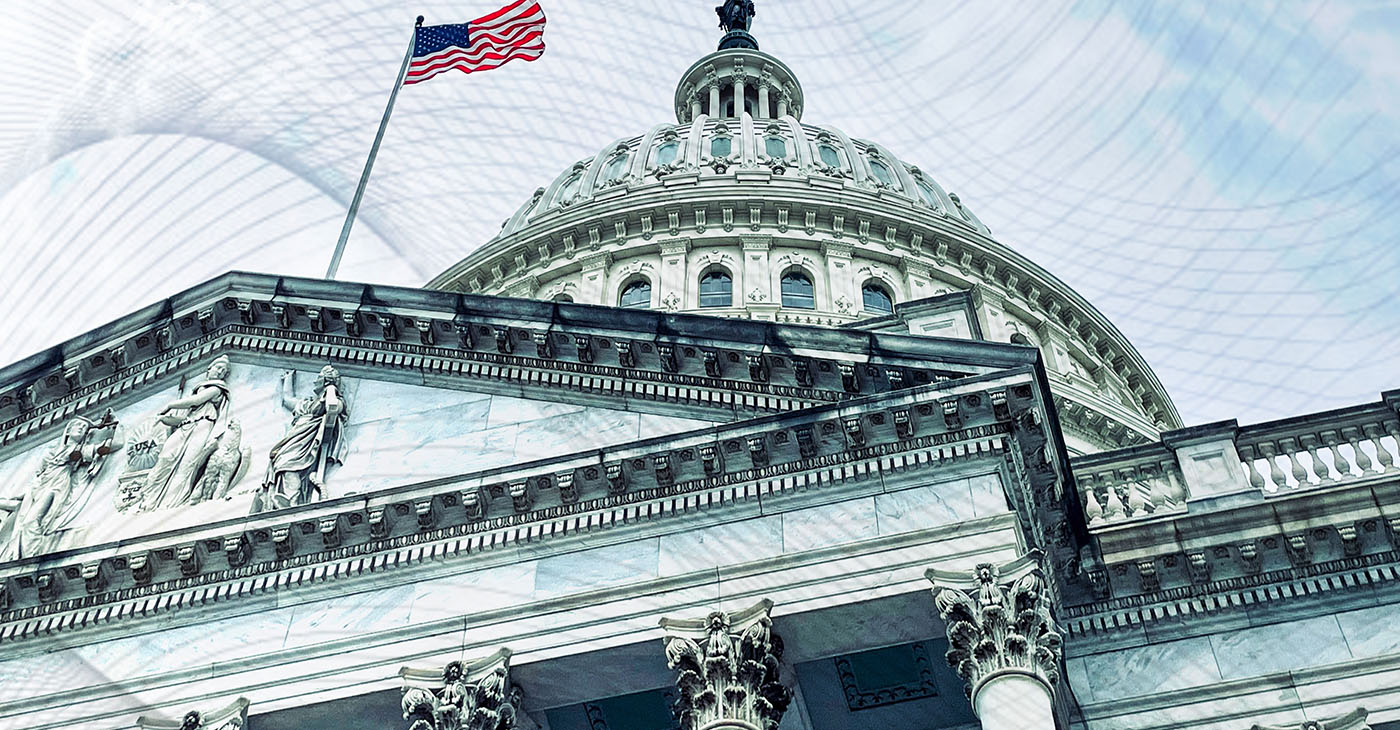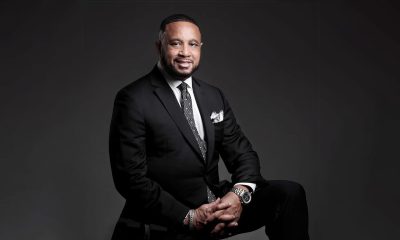Community
Maui, The GOP Debate, an Ex-President’s Arrest, Who Shall Lead America?
On a week that an ex-president is arrested and arraigned for an historic fourth time, one must wonder what kind of leader the American public really wants. Especially when the four-time indicted ex-president is leading all Republicans to be our next president.

By Emil Guillermo
On a week that an ex-president is arrested and arraigned for an historic fourth time, one must wonder what kind of leader the American public really wants.
Especially when the four-time indicted ex-president is leading all Republicans to be our next president.
Here’s one measure. On Aug. 21, 1983, Benigno (Ninoy) Aquino, the Philippine political activist in exile in the U.S., went home to win back freedom for Filipinos living under the dictatorship of Ferdinand Marcos.
Aquino never made it out of the airport, assassinated on the tarmac, apparently by a single gunman. After an investigation, his murder was pinned to 16 members of the Philippine Army loyal to Marcos.
Within 10 days of the assassination, I was in Manila at Santo Domingo Church reporting for the San Francisco NBC station from the funeral Mass, and then observing the procession to the Manila Memorial Park.
More than 2 million people were in the streets following the casket of Ninoy, their exiled leader. But they were also angered by the lost chance at real democracy.
That demonstration was the precursor to People Power, which would lift up Ninoy’s wife, Cory Aquino, and ultimately topple Marcos.
I have never seen 2 million people in one place, before or since.
That’s the spark missing in American politics. We just don’t have leaders who are beloved and respected as we’ve had in the past.
Instead, we have a personality cult that has a stranglehold on our politics. And even after this week, some people still won’t quit the indicted one.
Think of the Philippines. Could we even see 2 million people on the streets for a real bi-partisan pro-democracy movement in the U.S. today?
Maui Disaster a Test in Leadership
President Joe Biden went to Maui on Monday, as he should. Last week, he announced $700 per household in cash aid to victims of the Maui wildfires. By Friday, FEMA pledged $5.6 million in assistance to nearly 2,000 families in Maui. But money isn’t everything. This will be the time for Uncle Joe to act like ohana (family).
We needed to see some compassion from Biden. And he delivered. He wasn’t like Trump who threw toilet paper at the Puerto Ricans in 2017 after Hurricane Maria.
In Maui, Biden stood by a surviving banyan tree, saw it as a symbol, and vowed that the whole country will be behind Maui. And then he said the government would be respectful of the traditions, and “rebuild the way that the people of Maui want.”
That was an important acknowledgment if you know Hawaiian history.
We need leaders to admit that Hawaii is ground zero for a form of economic imperialism. A reminder about how Hawaii did not come begging for statehood and how it was made a U.S. protectorate via a coup staged against her.
Those are the words of Marianne Williamson from her Substack article, “Hawaii’s Broken Heart.”
“Hawaii is deeply sacred land,” she wrote “And her heart has been wounded by the soulless economic overreach of everyone from Dole to Monsanto.”
Specifically, James Drummond Dole, who was known as “The Pineapple King.” Aided by exploited Filipino labor, he colonized the spiky fruit and sent it around the world.
He was inspired by his cousin Sanford Dole, a Republican appointed by the U.S. imperial president William McKinley as territorial governor. That wasn’t enough for Dole, who then led a coup against Queen Lili’uokalani in 1893 and became the first president of Hawaii.
Corruption, connections, and greed. This is how paradise has been co-opted in the past. In the modern day, it falls victim to the fury of climate change.
We’ve got to help Hawaii and make sure we don’t have another wildfire disaster that kills more than 100 people.
It can’t happen again.
“If this country cannot ramp down the fossil fuel extraction that is exacerbating these weather catastrophes, then the message is loud and clear that we are on the wrong road,” Williamson said last week.
Williamson is one of those candidates for president you don’t hear much about. She’s the other Democrat who is running, who speaks from the heart about people and government in a way that seems more honest and caring.
If more politicians talked like that, could we end our divides and work together? Or does the loving language of Williamson only deepen the divide?
It’s surely a moral rhetoric from left of center that exposes the right-wing theocracy and all its hypocrisies.
But few people talk about Marianne Williamson.
Maybe because she makes too much sense?
GOP’s Anti-Asian Hate and the Personal Debate of Tucker /Trump
You’re likely not going to hear much candor about Maui from Republicans at this week’s first GOP debate.
But there will be a debate, and Donald Trump won’t be there.
Trump will show his stranglehold on Republicans by refusing to debate the also-rans. Instead, at the same time, he’ll submit to an interview by the disgraced former Fox host Tucker Carlson, a noted Trump sycophant.
I will be watching the debates mostly because Gov. Ron DeSantis’ campaign has been exposed as adopting an anti-Asian, name-calling approach against Vivek Ramaswamy, the businessman who’s quickly catching up to DeSantis.
There’s a reason to go after Ramaswamy — wanting to cancel the Juneteenth holiday is one.
But what we’re seeing is standard after conservatives won the Harvard affirmative action case.
White people going after affirmative action was a no go. The folks who led the Harvard case saw that. With a white plaintiff, they lost. With an Asian plaintiff, they won.
So, the model for conservative causes will be to lead with the Asian. Let the ‘model minority’ do it. It may even be the reason we see so many Asians in local races leading conservative recall efforts.
Vivek is a congenial panderer who will do anything for attention – even rap like Eminem last week at the Iowa State Fair.
He’s making headway by being the likeable non-white white.
It hasn’t worked that well in this campaign for Nikki Haley. But it may yet work for Tim Scott.
For now, Vivek is the dynamo among the also-rans and it’s getting to DeSantis. If you hear DeSantis say “Vivek the Fake,” you’ll know he is running out of gas.
Call it model minority politics, acceptable for white consumption. And after the conservative win over Harvard to defeat affirmative action, expect to see more of that in the future.
It’s fighting race with the non-white face.
You won’t get 2 million marching in the streets. But it gets a candidate what he needs in our polarized society, one more vote than the minority.
Emil Guillermo is a journalist and commentator. See his web talk show on www.amok.com
Activism
Oakland Post: Week of December 31, 2025 – January 6, 2026
The printed Weekly Edition of the Oakland Post: Week of – December 31, 2025 – January 6, 2026

To enlarge your view of this issue, use the slider, magnifying glass icon or full page icon in the lower right corner of the browser window.
Activism
Big God Ministry Gives Away Toys in Marin City
Pastor Hall also gave a message of encouragement to the crowd, thanking Jesus for the “best year of their lives.” He asked each of the children what they wanted to be when they grow up.

By Godfrey Lee
Big God Ministries, pastored by David Hall, gave toys to the children in Marin City on Monday, Dec. 15, on the lawn near the corner of Drake Avenue and Donahue Street.
Pastor Hall also gave a message of encouragement to the crowd, thanking Jesus for the “best year of their lives.” He asked each of the children what they wanted to be when they grew up.
Around 75 parents and children were there to receive the presents, which consisted mainly of Gideon Bibles, Cat in the Hat pillows, Barbie dolls, Tonka trucks, and Lego building sets.
A half dozen volunteers from the Big God Ministry, including Donnie Roary, helped to set up the tables for the toy giveaway. The worship music was sung by Ruby Friedman, Keri Carpenter, and Jake Monaghan, who also played the accordion.
Big God Ministries meets on Sundays at 10 a.m. at the Mill Valley Community Center, 180 Camino Alto, Mill Valley, CA Their phone number is (415) 797-2567.
Activism
First 5 Alameda County Distributes Over $8 Million in First Wave of Critical Relief Funds for Historically Underpaid Caregivers
“Family, Friend, and Neighbor caregivers are lifelines for so many children and families in Alameda County,” said Kristin Spanos, CEO, First 5 Alameda County. “Yet, they often go unrecognized and undercompensated for their labor and ability to give individualized, culturally connected care. At First 5, we support the conditions that allow families to thrive, and getting this money into the hands of these caregivers and families at a time of heightened financial stress for parents is part of that commitment.”

Family, Friend, and Neighbor Caregivers Can Now Opt Into $4,000 Grants to Help Bolster Economic Stability and Strengthen Early Learning Experiences
By Post Staff
Today, First 5 Alameda County announced the distribution of $4,000 relief grants to more than 2,000 Family, Friend, and Neighbor (FFN) caregivers, totaling over $8 million in the first round of funding. Over the full course of the funding initiative, First 5 Alameda County anticipates supporting over 3,000 FFN caregivers, who collectively care for an estimated 5,200 children across Alameda County. These grants are only a portion of the estimated $190 million being invested into expanding our early childcare system through direct caregiver relief to upcoming facilities, shelter, and long-term sustainability investments for providers fromMeasure C in its first year. This investment builds on the early rollout of Measure C and reflects a comprehensive, system-wide strategy to strengthen Alameda County’s early childhood ecosystem so families can rely on sustainable, accessible care,
These important caregivers provide child care in Alameda County to their relatives, friends, and neighbors. While public benefits continue to decrease for families, and inflation and the cost of living continue to rise, these grants provide direct economic support for FFN caregivers, whose wages have historically been very low or nonexistent, and very few of whom receive benefits. As families continue to face growing financial pressures, especially during the winter and holiday season, these grants will help these caregivers with living expenses such as rent, utilities, supplies, and food.
“Family, Friend, and Neighbor caregivers are lifelines for so many children and families in Alameda County,” said Kristin Spanos, CEO, First 5 Alameda County. “Yet, they often go unrecognized and undercompensated for their labor and ability to give individualized, culturally connected care. At First 5, we support the conditions that allow families to thrive, and getting this money into the hands of these caregivers and families at a time of heightened financial stress for parents is part of that commitment.”
The funding for these relief grants comes from Measure C, a local voter-approved sales tax in Alameda County that invests in young children, their families, communities, providers, and caregivers. Within the first year of First 5’s 5-Year Plan for Measure C, in addition to the relief grants to informal FFN caregivers, other significant investments will benefit licensed child care providers. These investments include over $40 million in Early Care and Education (ECE) Emergency Grants, which have already flowed to nearly 800 center-based and family child care providers. As part of First 5’s 5-Year Plan, preparations are also underway to distribute facilities grants early next year for child care providers who need to make urgent repairs or improvements, and to launch the Emergency Revolving Fund in Spring 2026 to support licensed child care providers in Alameda County who are at risk of closure.
The FFN Relief Grants recognize and support the essential work that an estimated 3,000 FFN caregivers provide to 5,200 children in Alameda County. There is still an opportunity to receive funds for FFN caregivers who have not yet received them.
In partnership with First 5 Alameda County, Child Care Payment Agencies play a critical role in identifying eligible caregivers and leading coordinated outreach efforts to ensure FFN caregivers are informed of and able to access these relief funds.FFN caregivers are eligible for the grant if they receive a child care payment from an Alameda County Child Care Payment Agency, 4Cs of Alameda County, BANANAS, Hively, and Davis Street, and are currently caring for a child 12 years old or younger in Alameda County. Additionally, FFN caregivers who provided care for a child 12 years or younger at any time since April 1, 2025, but are no longer doing so, are also eligible for the funds. Eligible caregivers are being contacted by their Child Care Payment Agency on a rolling basis, beginning with those who provided care between April and July 2025.
“This money is coming to me at a critical time of heightened economic strain,” said Jill Morton, a caregiver in Oakland, California. “Since I am a non-licensed childcare provider, I didn’t think I was eligible for this financial support. I was relieved that this money can help pay my rent, purchase learning materials for the children as well as enhance childcare, buy groceries and take care of grandchildren.”
Eligible FFN caregivers who provided care at any time between April 1, 2025 and July 31, 2025, who haven’t yet opted into the process, are encouraged to check their mail and email for an eligibility letter. Those who have cared for a child after this period should expect to receive communications from their child care payment agency in the coming months. FFN caregivers with questions may also contact the agency they work with to receive child care payments, or the First 5 Alameda help desk, Monday through Friday, from 9 a.m. to 5:00 p.m. PST, at 510-227-6964. The help desk will be closed 12/25/25 – 1/1/26. Additional grant payments will be made on a rolling basis as opt-ins are received by the four child care payment agencies in Alameda County.
Beginning in the second year of Measure C implementation, FFN caregivers who care for a child from birth to age five and receive an Alameda County subsidized voucher will get an additional $500 per month. This amounts to an annual increase of about $6,000 per child receiving a subsidy. Together with more Measure C funding expected to flow back into the community as part of First 5’s 5-Year Plan, investments will continue to become available in the coming year for addressing the needs of childcare providers in Alameda County.
About First 5 Alameda County
First 5 Alameda County builds the local childhood systems and supports needed to ensure our county’s youngest children are safe, healthy, and ready to succeed in school and life.
Our Mission
In partnership with the community, we support a county-wide continuous prevention and early intervention system that promotes optimal health and development, narrows disparities, and improves the lives of children from birth to age five and their families.
Our Vision
Every child in Alameda County will have optimal health, development, and well-being to reach their greatest potential.
Learn more at www.first5alameda.org.
-

 Activism4 weeks ago
Activism4 weeks agoDesmond Gumbs — Visionary Founder, Mentor, and Builder of Opportunity
-

 Activism4 weeks ago
Activism4 weeks agoFamilies Across the U.S. Are Facing an ‘Affordability Crisis,’ Says United Way Bay Area
-

 Alameda County4 weeks ago
Alameda County4 weeks agoOakland Council Expands Citywide Security Cameras Despite Major Opposition
-

 Alameda County4 weeks ago
Alameda County4 weeks agoBling It On: Holiday Lights Brighten Dark Nights All Around the Bay
-

 Activism4 weeks ago
Activism4 weeks agoOakland Post: Week of December 17 – 23, 2025
-

 Activism4 weeks ago
Activism4 weeks agoBlack Arts Movement Business District Named New Cultural District in California
-

 Activism4 weeks ago
Activism4 weeks agoLu Lu’s House is Not Just Toying Around with the Community
-

 Activism1 week ago
Activism1 week agoOP-ED: AB 1349 Puts Corporate Power Over Community

















































